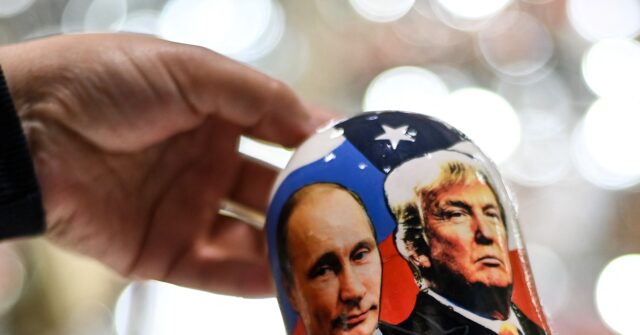As Vice President Kamala Harris navigates a challenging electoral landscape, narratives surrounding potential Russian interference are resurfacing among left-wing commentators. In this context, figures on the left are framing the possibility of a Harris defeat as influenced by foreign meddling rather than domestic shortcomings. This narrative seems to serve a dual purpose: it deflects blame from the current administration and reinforces a sense of victimization against external adversaries. Harris’s alliance with the Biden administration’s policies, particularly those supporting Ukraine, has positioned her as a target for alleged Russian interference aimed at sowing discord within the United States.
Prominent voices in media, such as CBS News host Margaret Brennan, suggest that Russia’s motivations extend beyond just wanting to undermine Harris. Brennan claims that Russian efforts are designed to create chaos and division within American society, insinuating a persistent threat that transcends the election period. This portrayal of Russia as an omnipresent adversary engaged in psychological warfare against American institutions and citizens raises concerns about long-term impacts on public trust, system credibility, and societal cohesion.
MSNBC analyst David Corn has also contributed to this narrative, asserting that Harris is not only contending with Donald Trump but also with Russian interference aimed at manipulating crucial votes. Echoing this sentiment, extreme left-wing commentator Keith Olbermann has described Russia’s actions as an “act of war” against U.S. democracy, while Daily Beast columnist Wajahat Ali claims that there is ongoing meddling to benefit Trump. Ultimately, this coalition of voices appears intent on framing the potential outcomes of the election through the lens of external sabotage.
Despite these assertions, skepticism about the validity of the Russian interference narrative persists. The 2016 election, particularly the Hillary Clinton loss, has become a focal point for discussions about foreign influence. Clinton herself has candidly warned of impending Russian threats to the upcoming election, bolstered by her belief that interference played a crucial role in her defeat in 2016. However, revelations from the Durham report have cast doubt on the previously dominant narrative of collusion with Russia, which purportedly targeted Trump and his administration.
The prospect of another election cycle defined by claims of Russian interference raises questions about the broader implications for American democracy. With a polarized political environment increasingly characterized by blame-shifting and externalization of accountability, the rhetoric surrounding Russian influence could serve to exacerbate divisions and undermine the foundations of electoral integrity. The invocation of a foreign adversary conveniently aligns with the political necessity of shielding incumbents from domestic criticism, ultimately distracting from pressing issues that voters face.
In sum, the revival of Russian interference narratives as a scapegoat for potential electoral outcomes reflects a battle not just for political power but for the narrative control of democracy in the U.S. As Kamala Harris stands on a precipice of electoral uncertainty, the discussions about foreign influence hint at a strategic attempt by some left-wing factions to mitigate blame and maintain unity amidst adversity. However, this tactic risks perpetuating a cycle of distrust and disillusionment that could have lasting repercussions for the political landscape and societal cohesion in America.

